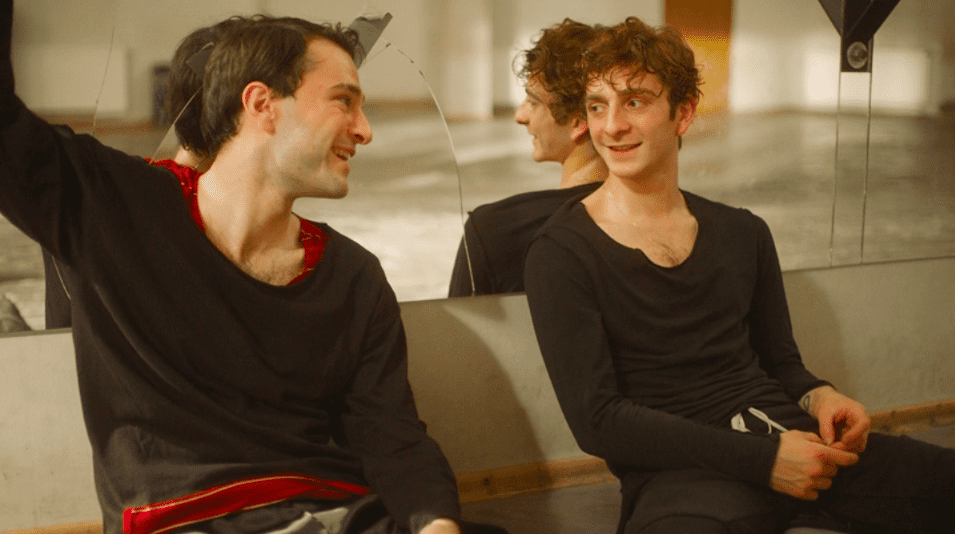In this day and age, many films, especially those in the mainstream, are not attuned to taking risks, let alone inspiring revolutions. However, what was meant to be an inclusive ode to his Georgian heritage, Levan Akin’s film, And Then We Danced, has become a beacon of representation and hope for queer people in Georgian culture.
And Then We Danced follows Merab (Levan Gelbakhiani) in the Georgian National Ensemble through a poignant coming-of-age tale. Merab has aspired in Georgian dancing his entire life; however, when Irakli (Bachi Valishvili), a newcomer, enters the picture, his whole world is shaken apart. Not only is Irakli Merab’s rival for a rare spot in the main ensemble, but he also becomes his love interest through a whirlwind of emotions.
At its core, And Then We Danced nails it. Despite having little knowledge of Georgian dance and culture, the film made me comfortable almost immediately. It is clear from the outset what Georgian dance represents and the strict masculinity it embodies. The film wonderfully plays with this art form and allows the characters to reclaim it and embody themselves within it.
It is perhaps for this reason that And Then We Danced attracted violent protests from far-right protesters when it premiered in Tbilisi restricting its screenings to three days. Rather than being just a gay movie, it represents a reclamation of a rigid cultural institution that is used as a justification for hyper-masculine norms. However, as pointed out in the film, Georgian dance itself has changed and it indeed ‘used to be softer’.
Despite these tensions, however, many accolades have been given to the film. And Then We Danced won Best Feature at the 2019 Iris Prize LGBT+ Film Festival and received the audience’s Grand Prix and the jury’s Best Film at the 2019 Odesa International Film Festival. Gelbakhiani also won Best Actor at the festival as well as the Heart of Sarajevo for Best Actor at the 25th Sarajevo Film Festival.
On that point, Gelbakhiani’s performance in the film is undoubtedly magnificent. Though he is a newcomer to film, his emotional performance is strong. He conveys emotion to a degree that is not only believable but honest. His dance performance is also very well executed.
Though its reception in Georgia has been mixed, And Then We Danced has been embraced in Akin’s native Sweden where it was selected as the Swedish entry for the Best International Feature Film in the 92nd Academy Awards. It also picked up four awards at the Swedish Guldbagge Awards including Best Film and Best Male Lead Actor (Gelbakhiani). In a perhaps reference to Akin’s home country, the movie has Swedish music references which are well integrated.
With this stark contrast, it illustrates the importance of a film like And Then We Danced. Though the movie was filmed in Georgia at times with great difficulty, production-wise the film was a collaboration between Swedish, French and Georgian co-producers. While the film is most definitely Georgian, the support it gathered from other more progressive countries, highlights an important cultural divide illustrating the support Georgia’s queer community needs. In saying this, the film did garner support from the Georgian media and sold out its 6000 tickets for its three Tbilisi screenings in minutes.
Ultimately, And Then We Danced, is not only a story about two queer male dancers, but a story about the perseverance of the Georgian and international queer community. Emotional and raw, the film shows a beacon of hope and protest amid a rigid cultural intuition showing incredible acting and dance performances from Gelbakhiani.
And Then We Danced will be screened at Event Cinemas, George Street on Tuesday 25 February at 8:30 pm as part of Queer Screen’s Mardi Gras Film Festival. It will also be showing at The Capitol, Melbourne on 19 March 2020 as part of the Melbourne Queer Film Festival.





